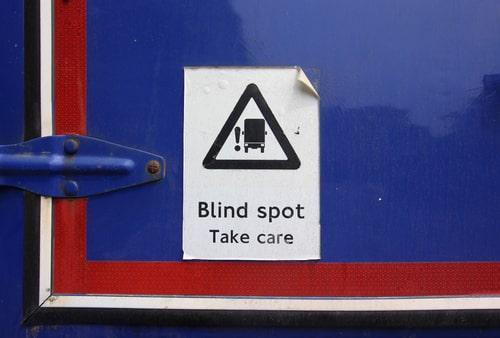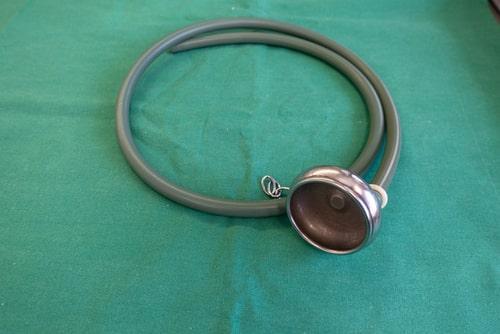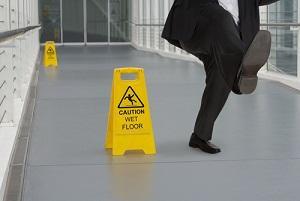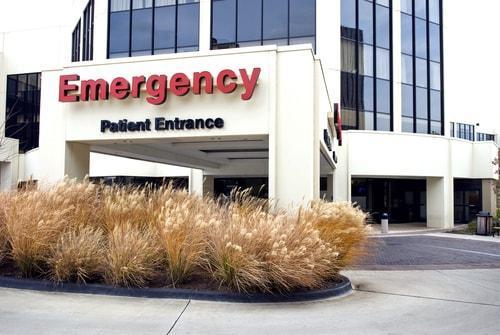Recent Blog Posts
Who is Liable for Injuries Sustained in an Illinois Blind Spot Truck Crash?
 Commercial trucks often measure up to 70 feet in length. Consequently, truck drivers must rely on mirrors and assistive technology like back-up sensors to see around the vehicle. Even with this equipment, it is hard for truck drivers to see vehicles or other objects in the truck’s “blind spots.” Blind spot truck accidents often lead to severe injuries and costly property damage. A personal injury claim may allow an injured person to recover compensation for these damages. However, determining liability for a blind spot truck accident is often a difficult task.
Commercial trucks often measure up to 70 feet in length. Consequently, truck drivers must rely on mirrors and assistive technology like back-up sensors to see around the vehicle. Even with this equipment, it is hard for truck drivers to see vehicles or other objects in the truck’s “blind spots.” Blind spot truck accidents often lead to severe injuries and costly property damage. A personal injury claim may allow an injured person to recover compensation for these damages. However, determining liability for a blind spot truck accident is often a difficult task.
Understanding Blind Spot Accidents
Truck blind spots are areas around the truck that the driver cannot see. If a car, motorcycle, pedestrian, or cyclist is in the truck’s blind spot, the driver may not even know that the person or vehicle is there. This can have disastrous consequences. Most driver education programs include information about truck blind spots or “no zones” and instruct drivers to stay out of truck’s blind spots if possible. Truck blind spots typically include the areas:
Can I Bring a Personal Injury Claim Against a Negligent Dog Owner?
 Dogs can be lovable companions. However, they are still animals with sharp teeth and powerful jaws. Almost five million people are bitten by dogs every year in the United States. Dog bites can cause nerve damage, broken bones, infections, and other serious injuries. Non-bite injuries, such as traumatic brain injuries caused by being knocked to the ground by a dog, can also be severe. If you or a loved one were injured by a dog, you may be able to hold the negligent dog owner accountable and recover compensation through a personal injury claim.
Dogs can be lovable companions. However, they are still animals with sharp teeth and powerful jaws. Almost five million people are bitten by dogs every year in the United States. Dog bites can cause nerve damage, broken bones, infections, and other serious injuries. Non-bite injuries, such as traumatic brain injuries caused by being knocked to the ground by a dog, can also be severe. If you or a loved one were injured by a dog, you may be able to hold the negligent dog owner accountable and recover compensation through a personal injury claim.
Dog Bite Injuries Can Lead to Terrible Mental and Physical Scars
Being the victim of a dog attack is an extremely traumatic experience to go through. A dog bite victim may suffer severe tissue damage that requires significant medical treatment. Many dog bite victims sustain injuries to their face, which can leave them disfigured for months or years after the attack. A dog bite victim may require emergency room treatment, x-rays, and reconstructive surgery, psychological treatment, and other expensive medical care. These medical costs may be recoverable through a personal injury claim.
Unique Issues in a Multiple-Vehicle or Pile-Up Accident
 Winter weather is in full force in the Rockford area, and icy roads and deep snow can make driving a treacherous task. “Pile-ups” or car accidents involving multiple vehicles are not uncommon during this time of year. These accidents cannot only lead to painful and often deadly injuries, they also present complex legal and financial issues. If you or a loved one were involved in a multi-car accident, you may have concerns about liability and damages. Will you be expected to pay for other motorists’ damages? Will you be compensated for your own damages? Read on to learn more about the unique issues involved in multiple-vehicle accidents.
Winter weather is in full force in the Rockford area, and icy roads and deep snow can make driving a treacherous task. “Pile-ups” or car accidents involving multiple vehicles are not uncommon during this time of year. These accidents cannot only lead to painful and often deadly injuries, they also present complex legal and financial issues. If you or a loved one were involved in a multi-car accident, you may have concerns about liability and damages. Will you be expected to pay for other motorists’ damages? Will you be compensated for your own damages? Read on to learn more about the unique issues involved in multiple-vehicle accidents.
Establishing Fault for a Multiple-Car Collision
Accidents involving three or more vehicles can cause severe and deadly injuries as well as costly property damage. Before a car accident victim can recover financial compensation for their damages, the liable party must be established. The greater number of factors that contributed to an accident, the harder it is to establish fault. A multiple car accident may involve situations such as:
Misuse of Vacuum Extraction During Delivery Can Cause Serious Birth Injuries
 As any soon-to-be parent can tell you, expecting a new baby is exciting as well as nerve-racking. Every parent hopes that pregnancy, labor, and delivery will go smoothly and that their baby will be born happy and healthy. Unfortunately, some babies suffer birth injuries that cause medical complications for weeks, months, or even years after the child’s birth. Some birth injuries result in permanent impairment or, sadly, infant death. One problem that can cause a range of different birth injuries is the misuse of assistive tools like vacuum extractors.
As any soon-to-be parent can tell you, expecting a new baby is exciting as well as nerve-racking. Every parent hopes that pregnancy, labor, and delivery will go smoothly and that their baby will be born happy and healthy. Unfortunately, some babies suffer birth injuries that cause medical complications for weeks, months, or even years after the child’s birth. Some birth injuries result in permanent impairment or, sadly, infant death. One problem that can cause a range of different birth injuries is the misuse of assistive tools like vacuum extractors.
Vacuum-Assisted Delivery Carries Certain Risks
If labor is not progressing typically or there is an urgent need for a baby to be delivered, a doctor may use an assistive device to help guide the child through the birth canal. During vacuum extraction, a suction cup is placed on the infant’s head and used to gently pull the baby out of the mother’s body. This procedure may be life saving for some infants, but vacuum extraction is not without risks. Mothers may face genital tract tears and incontinence while an infant who was delivered by vacuum extraction may suffer from head wounds, skull fracture, or internal bleeding. Vacuum extraction is also associated with a higher risk of shoulder dystocia, a potentially life-threatening condition in which the baby’s shoulder becomes lodged on the mother’s pelvis. A doctor should only use vacuum extraction if it is necessary to protect the health of the mother or the baby.
How Can EDR Data and Camera Footage Support a Truck Accident Claim?
 Being involved in a serious truck accident can leave an individual injured, in pain, and with a massive financial burden. If you were injured in a truck accident or your loved one was killed in a fatal truck crash, you may be able to hold the at-fault party accountable for the damages incurred by your truck accident through a personal injury claim. However, to do so, you will need to prove that the actions taken by the truck driver, trucking company, or other negligent party caused your injuries. There are many different types of evidence that a personal injury attorney may use to prove the elements needed to secure compensation for you.
Being involved in a serious truck accident can leave an individual injured, in pain, and with a massive financial burden. If you were injured in a truck accident or your loved one was killed in a fatal truck crash, you may be able to hold the at-fault party accountable for the damages incurred by your truck accident through a personal injury claim. However, to do so, you will need to prove that the actions taken by the truck driver, trucking company, or other negligent party caused your injuries. There are many different types of evidence that a personal injury attorney may use to prove the elements needed to secure compensation for you.
Event Data Recorders
Many modern vehicles, including most commercial trucks, are equipped with technology that records vehicle information. An event data recorder (EDR) or accident data recorder is similar to the “black box” of an airplane. The majority of commercial trucks have such a device. EDRs record information about how and where a vehicle was driven. Information about speed, acceleration, braking, steering, and more may be gathered from an EDR. This data can be extremely useful in a truck accident claim. However, many EDRs only store vehicle information for a certain period of time. Gathering this data before it is deleted or recorded over is crucial.
Do I Have a Valid Slip and Fall Injury Claim?
 If you or a loved one were recently injured in a slip and fall or trip and fall accident, you may wonder what legal remedies you have at your disposal. A slip and fall injury claim may help you recover financial compensation for medical bills, lost wages from missed work, and other damages. However, a successful personal injury claim is only possible if certain elements are present. To know whether or not you have a valid injury claim and may be entitled to compensation, you must consider the circumstances of the accident, and whether a party’s negligence contributed to the fall accident.
If you or a loved one were recently injured in a slip and fall or trip and fall accident, you may wonder what legal remedies you have at your disposal. A slip and fall injury claim may help you recover financial compensation for medical bills, lost wages from missed work, and other damages. However, a successful personal injury claim is only possible if certain elements are present. To know whether or not you have a valid injury claim and may be entitled to compensation, you must consider the circumstances of the accident, and whether a party’s negligence contributed to the fall accident.
Property Owners Have a Legal Obligation to Maintain a Safe Premises
According to Illinois premises liability laws, property owners or occupiers must keep their properties reasonably safe for individuals who are lawfully visiting the property. This responsibility extends to the owners of properties such as:
Can I Sue Another Driver for an Accident Caused by Road Rage?
 Most people would agree that traffic can be a major source of frustration and anger. However, part of being a good driver is not letting negative emotions lead to unsafe driving. “Road rage” can lead to severe or even deadly car accidents. If you or a loved one were injured in a car accident caused by road rage, you may be entitled to financial compensation for your damages.
Most people would agree that traffic can be a major source of frustration and anger. However, part of being a good driver is not letting negative emotions lead to unsafe driving. “Road rage” can lead to severe or even deadly car accidents. If you or a loved one were injured in a car accident caused by road rage, you may be entitled to financial compensation for your damages.
Some Sources Say Road Rage is on the Rise
“Road rage” or intense anger behind the wheel can be caused by countless situations. Being tailgated, driving behind someone traveling well below the speed limit, running late, and many other factors can increase a person’s frustration and cause them to experience road rage. Some instances of road rage turn into physical altercations. Other times, an angry driver may intentionally drive in a dangerous manner or even try to run another driver off the road. One study from the National Highway Traffic Safety Administration found that aggressive driving increased by a factor of 500 percent within a single decade. Other studies have showed that a significant percentage of drivers admit to dangerous behaviors such as intentionally tailgating other vehicles.
I Was Harmed by an Emergency Room Mistake. Do I Have a Medical Malpractice Claim?
 Going to the emergency room is rarely a pleasant experience. A person may go to the ER because they are having chest pain and are worried that the pain is the first sign of a heart attack. They may also visit the ER after having a severe allergic reaction. Abdominal pain, broken bones, lacerations, migraine headaches, fevers, and other medical concerns may also lead someone to visit the emergency room. Unfortunately, some ER patients go to the facility seeking answers and relief but end up being victims of harmful medical mistakes.
Going to the emergency room is rarely a pleasant experience. A person may go to the ER because they are having chest pain and are worried that the pain is the first sign of a heart attack. They may also visit the ER after having a severe allergic reaction. Abdominal pain, broken bones, lacerations, migraine headaches, fevers, and other medical concerns may also lead someone to visit the emergency room. Unfortunately, some ER patients go to the facility seeking answers and relief but end up being victims of harmful medical mistakes.
Emergency Room Errors Can Lead to Preventable Suffering and Death
Emergency room doctors, nurses, and other staff have the important task of evaluating patients’ symptoms and determining the necessary course of action. When an ER worker makes a mistake that leads to a patient’s injury or death, the medical worker or the medical facility may be liable for damages. Often, emergency room malpractice claims arise because of delayed diagnosis or misdiagnosis. Consider the following example: A patient visits the emergency room because he or she is having severe abdominal pain. Staff assure him that his symptoms are caused by a simple case of indigestion when in actuality, the patient is suffering from appendicitis. The patient goes home and suffers a ruptured appendix. In a situation such as this, the emergency room staff’s failure to accurately diagnose appendicitis may lead to an emergency room malpractice claim.
When is a Bar or Nightclub Liable for Injuries Caused in a Fight?
 When we think about restaurants, bars, and nightclubs, we typically envision friends getting together to have a few drinks, eat a meal, dance, and enjoy themselves. Unfortunately, sometimes a night out turns into a nightmare. If you or a loved one was the victim of assault or battery at a bar, nightclub, or other commercial establishment, you may have questions about liability. Even if the police were called and the person who attacked you is facing criminal charges, you may still be left with serious expenses related to your injuries. In some cases, the establishment in which someone was physically attacked is liable for the costs suffered by the victim. However, bars and other establishments are only liable for injuries from an attack in certain situations.
When we think about restaurants, bars, and nightclubs, we typically envision friends getting together to have a few drinks, eat a meal, dance, and enjoy themselves. Unfortunately, sometimes a night out turns into a nightmare. If you or a loved one was the victim of assault or battery at a bar, nightclub, or other commercial establishment, you may have questions about liability. Even if the police were called and the person who attacked you is facing criminal charges, you may still be left with serious expenses related to your injuries. In some cases, the establishment in which someone was physically attacked is liable for the costs suffered by the victim. However, bars and other establishments are only liable for injuries from an attack in certain situations.
Physical Attacks Can Lead to Considerable Damages
Whether you were injured in a fight or you were simply a bystander who was injured while other people were fighting, injuries from a bar fight can be severe. You may have sustained deep lacerations, broken bones, traumatic brain injury, or other injuries that required emergency medical care. Now you are left with medical bills and other financial concerns. You may be unable to work and earn an income while your injuries are healing. In situations such as these, a premises liability claim against the establishment may allow you to recover financial compensation.
Can Medical Malpractice During Childbirth Cause Erb’s Palsy?
 Have you ever stopped to consider how often you use your arms? Most people use their arms to drive, eat, work, clean, and perform countless other tasks. When an injury causes someone to experience reduced functioning in one or both arms, this can have a major impact on his or her life. Erb’s palsy is a condition typically caused by difficulties during a child’s birth that results in partial or complete paralysis of the arm. Sometimes, surgery and other medical interventions can remedy the paralysis and loss of sensation. In other cases, an infant who suffers from Erb’s palsy is left with impaired functioning and disfigurement for the rest of his or her life.
Have you ever stopped to consider how often you use your arms? Most people use their arms to drive, eat, work, clean, and perform countless other tasks. When an injury causes someone to experience reduced functioning in one or both arms, this can have a major impact on his or her life. Erb’s palsy is a condition typically caused by difficulties during a child’s birth that results in partial or complete paralysis of the arm. Sometimes, surgery and other medical interventions can remedy the paralysis and loss of sensation. In other cases, an infant who suffers from Erb’s palsy is left with impaired functioning and disfigurement for the rest of his or her life.
How Does Erb’s Palsy Occur?
Erb’s palsy is typically caused by damage to a network of nerves in the neck and shoulders called the brachial plexus. In the majority of cases, the nerve damage is caused by a complication during birth called shoulder dystocia. When an infant suffers shoulder dystocia, one or both of the infant’s shoulder’s become stuck in the birth canal. There are four main categories of Erb’s palsy:



